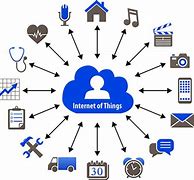Table of Contents
ToggleMillions (by 2015), Billions (by 2017) & Trillions (by 2020) of connected devices – Up uptil a few months ago, I heard Internet of things is the next big thing. Companies were creating significant teams and special Investment funds to jump on the bandwagon. It was the talk of the town. Strategists, executives and entrepreneurs were patting themselves on the back about catching a huge tailwind of market momentum and seemed surprised that anyone was worried that the big data market space would become too crowded for most start-ups to do well.
Today, I do not hear so much about big data (yes I am trying to draw a parallel) from new start-ups anymore or have they changed the name? Seriously, are they calling it a different name or just like other things it was a fad? Many big data start-ups were unable to reach potential, and the number of successes is still quite small. Big data as The Next Big Thing — in which success was assured because it was The Next Big Thing — has been replaced by the Internet of Things (IoT) in the hype cycle. I want to debate whether IOT is really the next big thing that will make money for the company, be as productive as it is sounds to be and change the game for many companies?
I’ll try and highlight three key issues for sake of discussion and would love to hear your thoughts; and while there are probably more, navigating even three simultaneously is the sort of choice an investor and entrepreneur really needs to think about before going into a market segment. This is not to say that no IoT startups will has good potential. Rather, there will be a higher failure rate for startups in IoT than in other, less obvious big market spaces, simply due to the dangers of Next Big Thing.
Issue # 1: The Law of Colossal Numbers
Millions (by 2015), Billions (by 2017) & Trillions (by 2020) of connected devices is what Cisco, IDC and every researcher out there is quoting, I also hear that the IoT will work at a scale never before achieved in human history. It will produce many opportunities because the numbers are so eye-popping big to say the least. Everybody quotes a Cisco study purporting to show that a trillion devices will connect to the IoT by the end of the decade. (Coincidentally, when big data was all the rage, the entrepreneurs all quoted a Cisco study showing the amazing amount of data being collected on storage every year. Of course, that study overlooked completely that a very large proportion of those bytes were video pixels, which is not as easily amenable to analytics as web session logs are.)
VCs are very inclined to want to dig into any quoted Large Number, especially when it comes from a firm that is not directly in the mainstream of that number. Do not try to impress them just by throwing a Large Number down on the table during a pitch. You should show them that you really understand why VCs should believe in that number and that you have an analytical edge that your competitors do not.
Issue # 2: Everyone is trying to jump on this band wagon as they heard about The Next Big Thing already.
Of course, this leads to scores of start-ups being funded that have all the attendant dangers. Do you really want to be trying to raise a Series B or C for an IoT startup amidst the bones of tens of startups that have already failed? This is an excellent point made by James Thermond in his recent article – he managed several board and sits on XSeed capital.
Issue # 3: Show me the money – a lack of compelling and convincing use cases.
We are still looking for the Malaysian airlines that disappeared almost a year ago now aren’t we. I have no doubt there is a use case out there. If the IoT were working today at scale, we would have known within minutes where MH370 disappeared. It is my personal opinion that most referenced IoT use cases are overlooking the tracking of high value assets that change position or quality rapidly over time in favor of the oft recycled “smart home” use cases. The former is compelling. The latter has been talked about for 20 years and still has no meaningful traction. The danger is that if IoT is talked about for too long before we see really compelling use cases, it will turn off the investment community.
The emergence of Next Big Thing seems to be a long lived fact of life, and so they are a constant danger to aspiring entrepreneurs. To point out two examples, think of Artificial Intelligence in the late 1980s and early 1990s and Solar Energy in the early part of the last decade. Both areas destroyed at least hundreds of millions of venture capital money and produced very few winners.
Before committing several years of your life to a Next Big Thing, make sure you have thought through these dangers and have a clear plan to navigate around them.
You need help commercialize your technology product or service – we can help you as we have solutions for growing business
At MarkiTech, we can help you increase your digital marketing presence by increasing your in-app and web traffic and inbound leads – we use marketing automation to convert leads into to sales, retaining and growing the customer base through our trademark ® MarkiTech CERP (Client Engagement and Retention Process).
We help commercialize your technology product or service, save you time and maximize your return on investment. We can do this as we are the end to end sales and marketing one stop shop (from consulting to implementation) besides focus on product led by marketing experts with over 50 years of partner experience developing, launching and managing over 30 technology products and services in 7 different verticals and 3 start-ups.
We at MarkiTech, know the key success factors of product success better that anyone with focus on marketing. You cannot afford not to spend money on marketing.
You can start with a free limited time consultation.
Website (www.markitech.ca),
[cta]
Blog Created by
Nauman Jaffar (CEO, MarkiTech)
based on recent research, articles about IOT from various authors, reading material (special mention of James Thermond) June 17th 2015.


